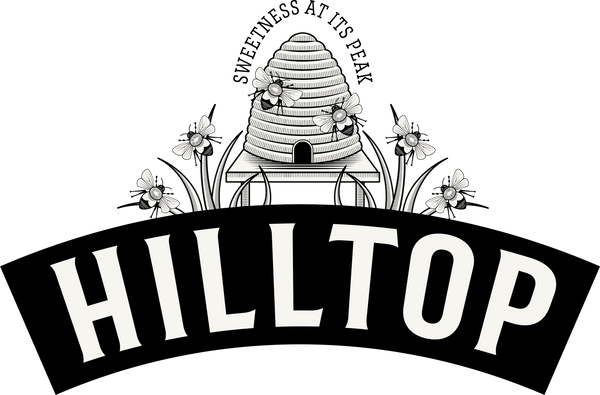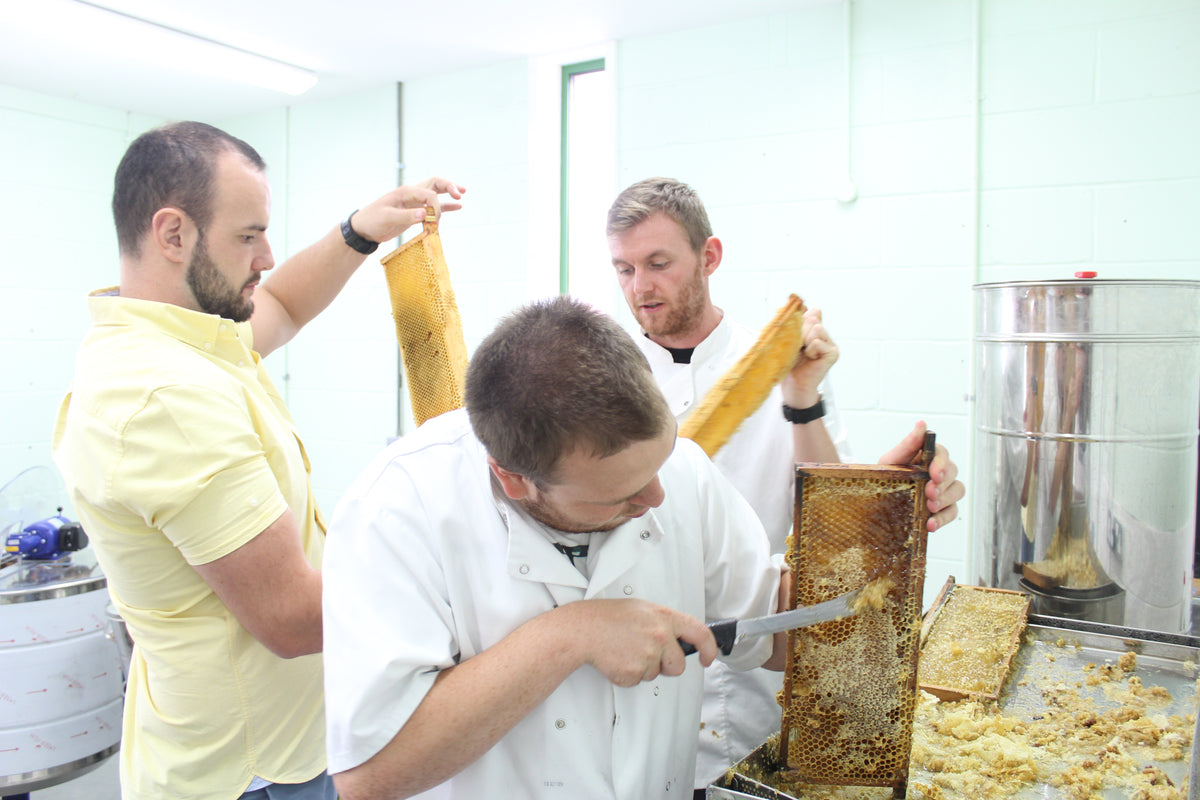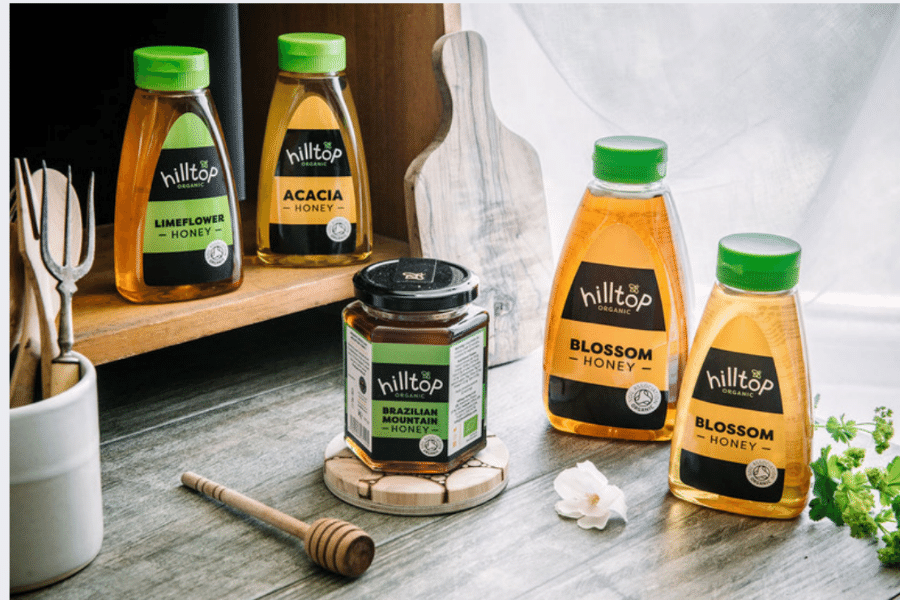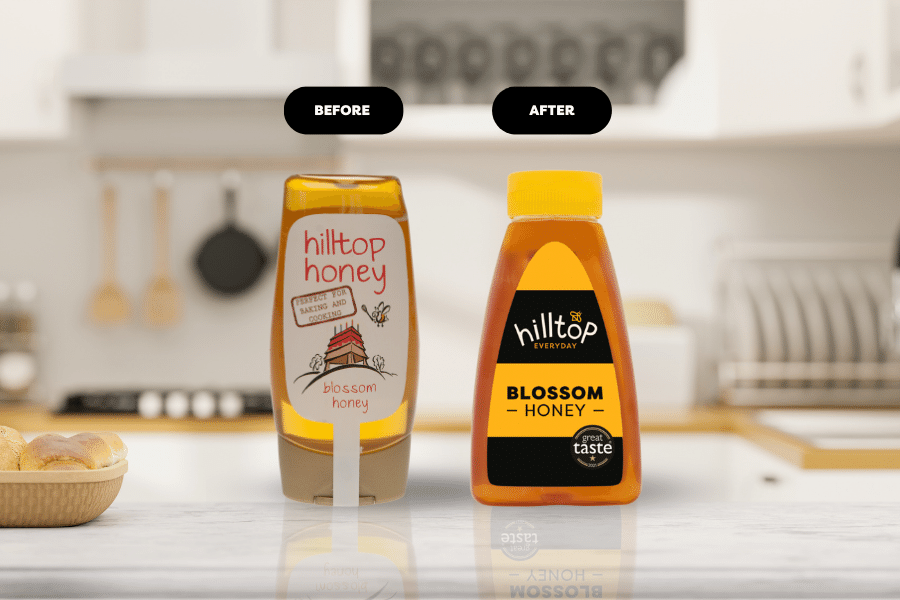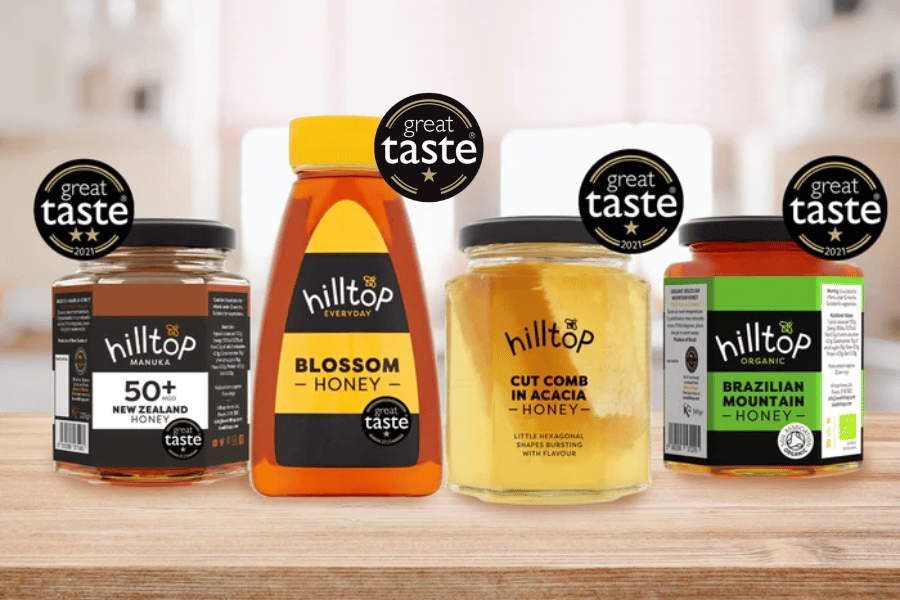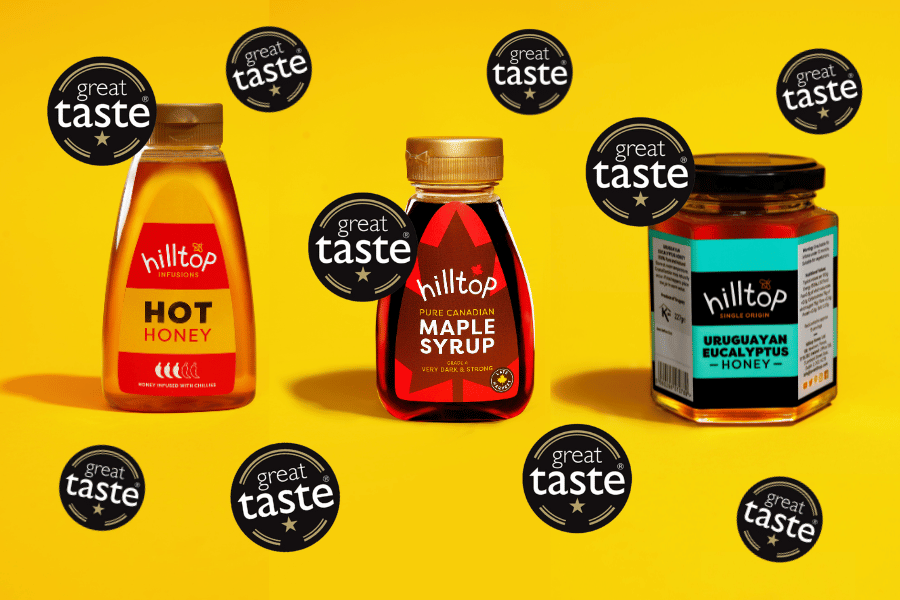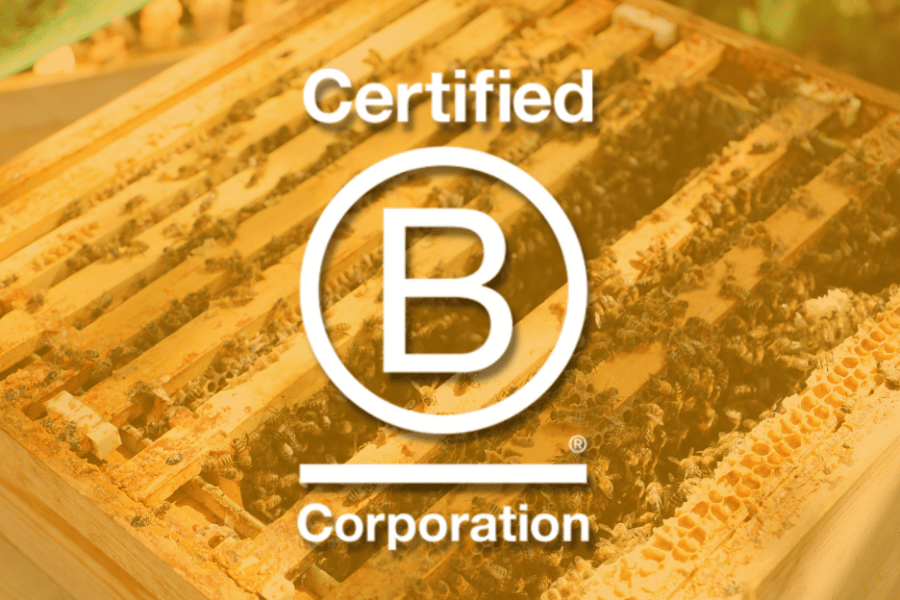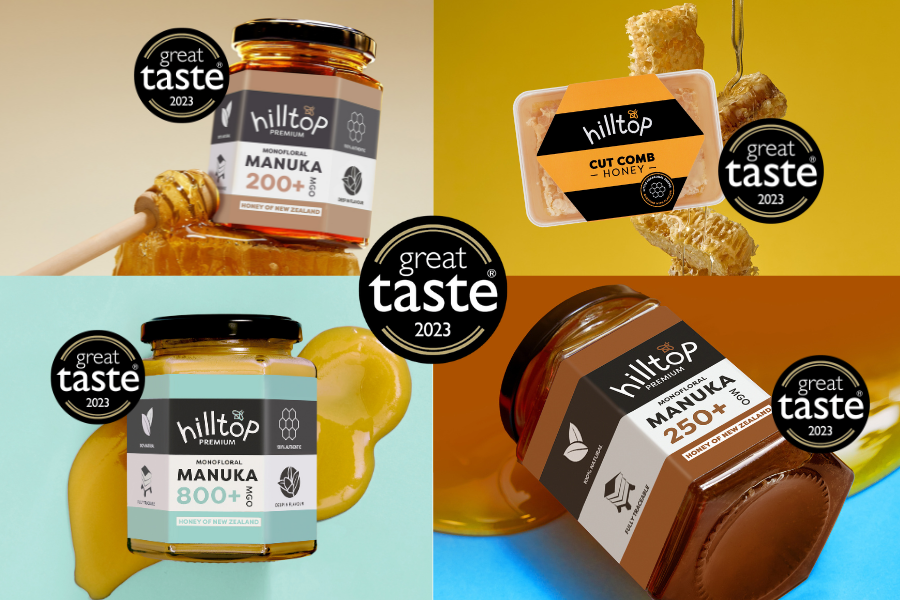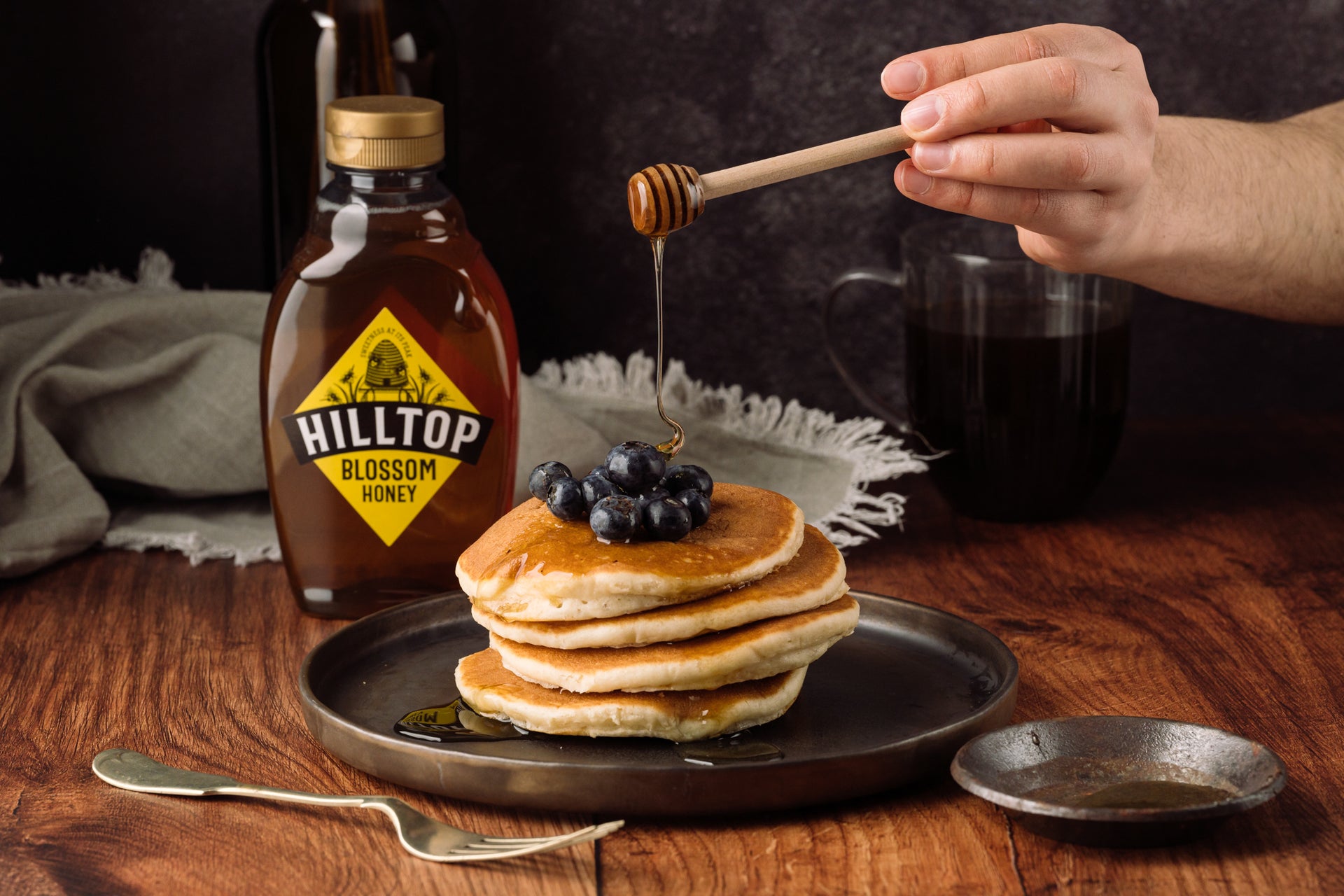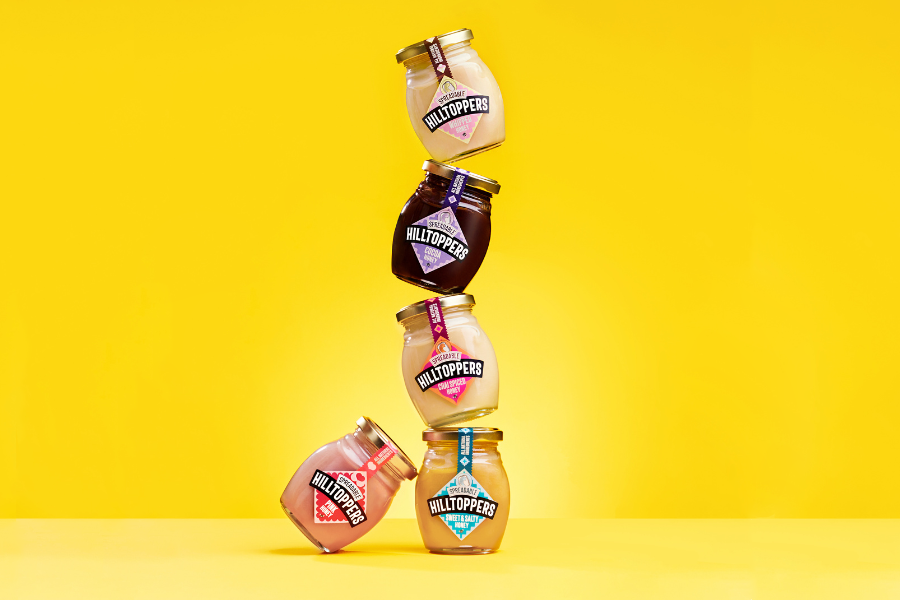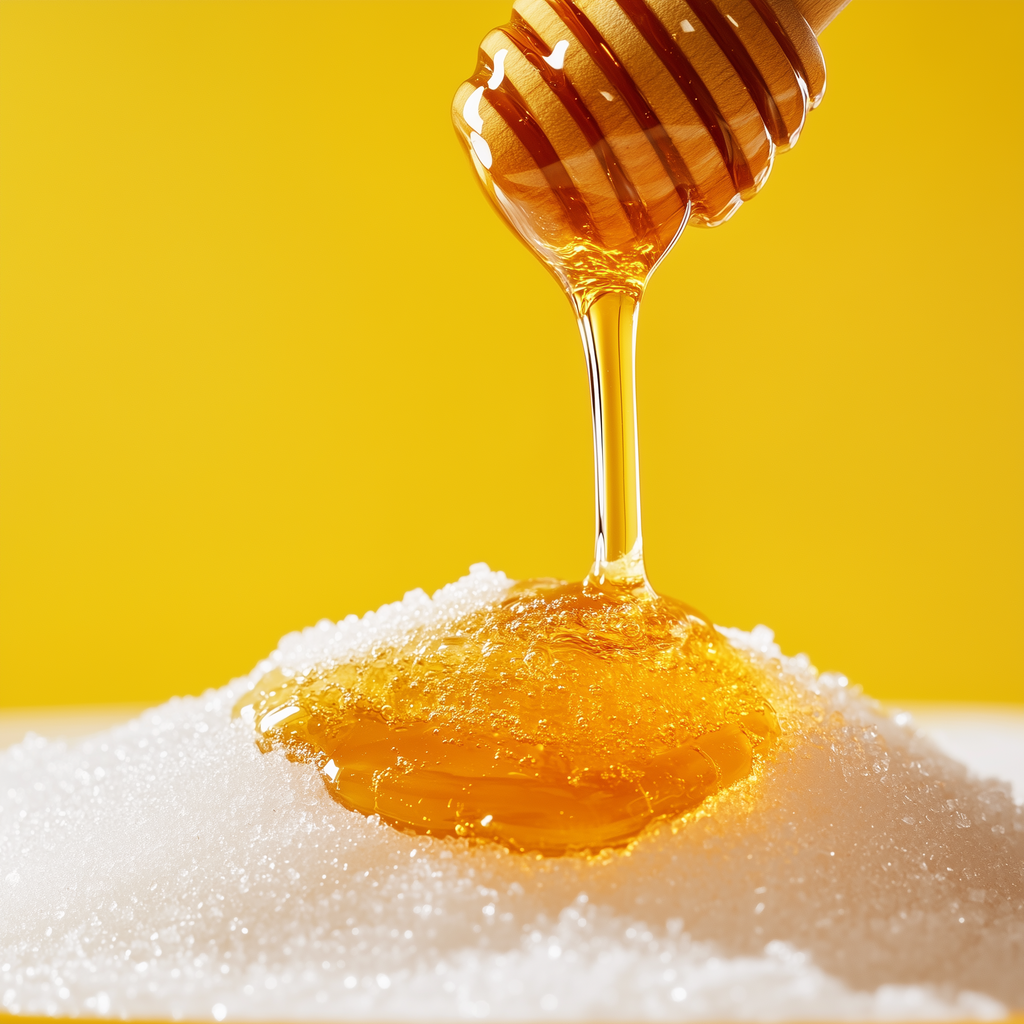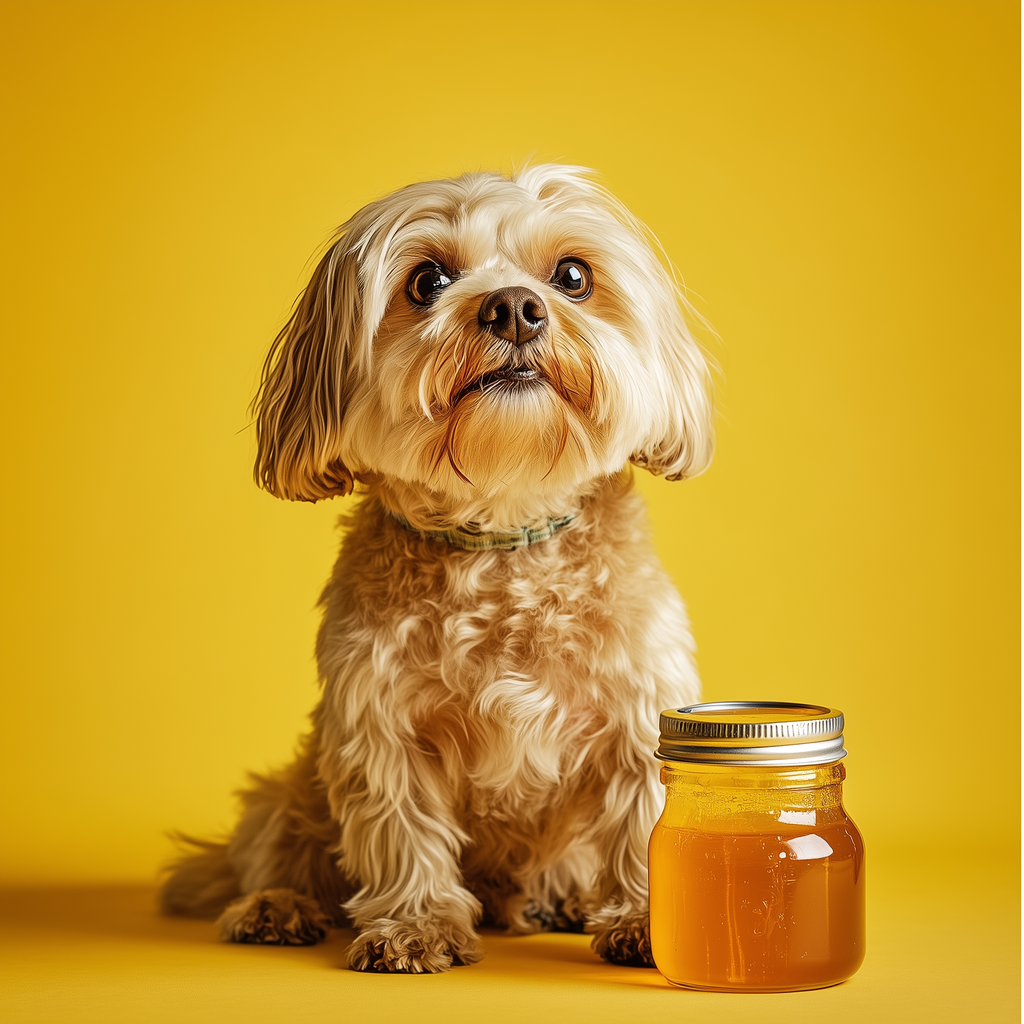Our Story

Our Journey
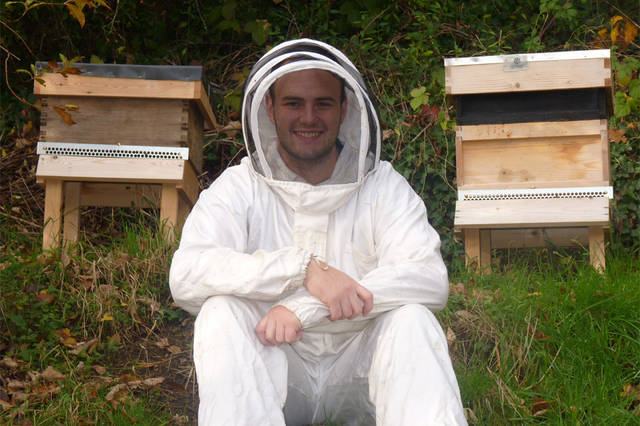
Raw & Unfiltered
Sustainable
Organic
Manuka
Nutrient Rich
Our Blog & Recipe
When it comes to sweeteners, honey often gets praised as the more natural, health-conscious choice. But is it really better than sugar? Whether you're stirring it into tea or baking a cake, knowing the differences can help you make more informed (and delicious) decisions.
In this guide, we break down how honey compares to sugar in terms of nutrition, taste, and health impact, with tips on when and how to use each one.
What Is Honey?
Honey is a natural sweetener made by bees from nectar. It’s made up mostly of sugars (primarily fructose and glucose), along with small amounts of vitamins, minerals, enzymes, and antioxidants.
Depending on the flowers visited by the bees, the flavour, texture, and colour of honey can vary, from light and floral to dark and rich. At Hilltop, we keep it simple: 100% pure honey, exactly as nature intended.
What Is Sugar?
Table sugar (or sucrose) is usually extracted from sugar cane or sugar beet and goes through heavy refining. It contains no additional nutrients or enzymes and is primarily made up of equal parts glucose and fructose.
Unlike honey, sugar is a single-ingredient product that delivers quick sweetness but nothing more.
Nutritional Comparison: Honey vs Sugar
| Nutrient | Honey (1 tbsp ~21g) | Sugar (1 tbsp ~12.5g) |
|---|---|---|
| Calories | ~64 kcal | ~49 kcal |
| Total Sugars | ~17g | ~12.5g |
| Antioxidants | Yes | No |
| Vitamins & Minerals | Yes | None |
Honey does contain slightly more calories and sugar per tablespoon, but also brings added goodness in the form of antioxidants and trace nutrients.
Is Honey Healthier Than Sugar?
In moderation, honey is generally considered a more wholesome option. Especially when it’s raw or lightly filtered, honey may offer benefits sugar doesn’t:
- Lower Glycaemic Index (GI): Honey’s GI is around 58, while sugar is 60–65. This means honey may cause a slower rise in blood sugar.
- Antioxidant Benefits: Honey contains polyphenols and flavonoids, which may help reduce inflammation and oxidative stress.
- Soothing Properties: Natural honey is often used for sore throats and cough relief — something sugar can’t offer.
Still, honey is a sugar and should be consumed mindfully.
Can You Swap Honey for Sugar in Recipes?
Yes — but keep a few adjustments in mind:
- Use ¾ cup of honey for every 1 cup of sugar.
- Reduce liquids in the recipe by about ¼ cup.
- Lower baking temperature by 10°C to avoid over-browning.
Want to try it in something easy? These Homemade Pancakes are a great place to start.
Is All Honey the Same?
Not at all. At Hilltop, we believe in keeping honey simple and traceable. Here’s what to know:
- Raw Honey: Unheated and unprocessed — full of natural enzymes and flavour.
- Blended Honey: Often processed or blended, potentially losing nutritional value.
Explore our Raw Honey Collection for pure, unblended options.
Quick FAQs
Is honey better than sugar?
Honey contains trace nutrients and antioxidants that sugar doesn’t. It may also have a slightly lower glycaemic index — but both should be enjoyed in moderation.
Can I use honey in tea instead of sugar?
Absolutely. Honey adds a gentle sweetness and subtle floral notes. It dissolves easily in warm drinks and pairs well with lemon or herbs.
Is honey suitable for diabetics?
It’s still a form of sugar, so it will raise blood glucose levels. Anyone with diabetes should speak to a healthcare provider before switching sweeteners.
Final Thoughts
So, is honey better than sugar? For most people, the answer is yes. It offers a more natural sweetener with small but notable health advantages, especially if you choose raw or single-origin varieties.
Looking for a better everyday sweetener? Start with Hilltop Honey — a delicious, traceable alternative that brings real value to your cupboard.
Related Reads
You’ve seen it on toast, swirling into tea, and drizzled over your favourite Greek yoghurt. But beyond its golden charm and luscious flavour, you might be wondering, is honey good for you?
Short answer? Yes - in all the right ways. But let’s dig a little deeper and discover what makes honey more than just nature’s sweet treat.
A Natural Wonder, Straight from the Hive
First things first: honey is as natural as it gets. Made by some of the busiest bees in the business, it’s a product of pure flower nectar and patient craftsmanship. From wildflower honey collected in British meadows to acacia honey gathered from fragrant European forests, this sweet stuff is steeped in heritage and made with a little magic from Mother Nature.
But what does it really offer when it comes to health and well-being?
1. Packed with Antioxidants
Let’s start strong: honey is full of antioxidants, those powerful little compounds that help your body fight off damage from free radicals. In particular, darker varieties like buckwheat or forest honey contain higher levels of polyphenols, which support heart health and cell regeneration.
In everyday terms? You’re not just sweetening your porridge, you’re giving your body a helping hand. Go on, have a spoonful, for science, of course.
2. Naturally Antibacterial and Antifungal
One of honey’s most legendary properties is its ability to fight off nasties. That’s thanks to its low water content and the presence of hydrogen peroxide, which creates a hostile environment for bacteria and fungi. It’s been used for centuries to soothe wounds and burns, and today, you’ll still find medical-grade manuka honey used in wound dressings.
And while we’re not suggesting you empty your honey jar into the first-aid kit, it’s reassuring to know this pantry staple has a serious track record.
3. A Sweet Soother for Coughs and Colds
Coughing through a cold? Honey might be just the thing to help you feel a little more human. According to the NHS and various health bodies, honey is more effective at relieving night-time coughing than many over-the-counter remedies, especially for children (over the age of one, that is).
A spoonful before bed in a warm drink might just do the trick. Just don’t forget to say “ahh” when you sip.
4. Gentle on Digestion
Honey has been found to have prebiotic effects, meaning it can help feed the good bacteria in your gut. A healthy microbiome is increasingly linked to overall well-being — from digestion and immunity to mood. So, adding honey to your morning routine might support more than just your taste buds.
Try it in a smoothie, your overnight oats, or simply stirred into hot water with a squeeze of lemon.
But Wait - Is All Honey the Same?
Not quite. Like wine, chocolate, or coffee, honey’s character varies wildly depending on where it’s made, what flowers the bees feed on, and how it’s processed. Raw honey — that is, honey that hasn’t been heat-treated or ultra-filtered — retains more of its natural enzymes and nutrients. It’s like drinking orange juice with bits — rustic, real, and packed with goodness.
At Hilltop, we’ve tasted and tested honey from around the world to bring you the best of it, whether it’s lavender-kissed jars from Spain or zingy citrus blossom from Italy. We believe in keeping it pure, traceable and utterly delicious.
A Word of Caution (Especially for Little Ones)
While honey is a delightful and health-supporting addition to most diets, it’s not suitable for infants under 12 months. That’s because of the risk of infant botulism — a rare but serious condition caused by bacteria that can be present in honey. For older children and adults, though, there’s no need to worry.
And as with all things sweet, moderation is key. Yes, honey comes from flowers and bees, but it’s still a sugar. So swap it in for refined sugar when you can — but don’t pour it on by the pint.
So, Is Honey Good for You?
In a word? Absolutely.
It’s antioxidant-rich, naturally antibacterial, gentle on digestion, and delightfully comforting when you’re feeling under the weather. More than that, it connects us to a centuries-old craft, a story of bees, blossoms, and brilliant beekeepers.
From lazy Sunday breakfasts to a soothing bedtime brew, honey is more than a cupboard essential, it’s a spoonful of golden joy.
So go ahead. Stir it, swirl it, spread it. And know that when you reach for a jar of Hilltop Honey, you’re enjoying the sweeter side of nature — responsibly sourced, lovingly packed and always crafted with care.
Ready to Taste the Difference?
From bold blossom blends to delicately floral drizzles, our honeys are raw, pure, and packed with personality. This is honey as it should be — unfiltered, full-flavoured, and naturally delicious.
Explore the Hilltop Honey Collection and find your new favourite jar today.
We all know honey is a delightful addition to our teas, toasts, and treats. But when your four-legged friend gives you those pleading eyes as you drizzle honey over your porridge, you might wonder: Can dogs eat honey?
Let's delve into the sweet truth about honey and our canine companions.
Is Honey Safe for Dogs?
Yes, in moderation, honey is generally safe for dogs. This natural sweetener is packed with nutrients like vitamins A, B-complex, C, D, E, and K, as well as minerals such as calcium, magnesium, and potassium. Its natural sugars can provide a quick energy boost, making it a handy treat for active or aging dogs.
However, it's essential to remember that honey is still a form of sugar. Overindulgence can lead to weight gain or dental issues. Always consult with your veterinarian before introducing new foods into your dog's diet.
Potential Benefits of Honey for Dogs
1. Natural Energy Booster
The natural sugars in honey can offer a quick energy source for dogs, especially those who are active or recovering from illness.
2. Soothing for Throats
Just as honey can soothe a human's sore throat, it may help alleviate minor throat irritations in dogs.
3. Skin and Coat Health
Honey's antimicrobial properties can benefit skin health. Some pet owners use honey topically on minor cuts or burns, but always consult a vet before doing so.
Precautions to Consider
-
Puppies and Honey: Avoid giving honey to puppies under one year old. Their immature immune systems might not handle certain bacteria that can be present in raw honey.
-
Diabetic Dogs: Due to its sugar content, honey isn't suitable for diabetic dogs.
-
Allergic Reactions: While rare, some dogs might be allergic to bee products. Introduce honey in small amounts and monitor for any adverse reactions.
How to Introduce Honey to Your Dog's Diet
If you're considering adding honey to your dog's diet:
-
Start Small: Begin with a tiny amount to see how your dog reacts.
-
Mix It Up: Drizzle a small amount over their regular food or mix it into homemade dog treats.
-
Limit Frequency: Treat honey as an occasional treat, not a daily supplement.
Choosing the Right Honey
Opt for raw, unprocessed honey. This ensures your dog receives the maximum nutritional benefits without added sugars or preservatives. At Hilltop Honey, our products are pure, natural, and crafted with care, ensuring both you and your furry friend enjoy the best nature has to offer.
In Conclusion
Honey can be a sweet, occasional treat for your dog, offering various health benefits when given responsibly. Always consult with your veterinarian before introducing new foods, and ensure you're providing the highest quality honey available.
Explore Our Natural Honey Collection
Looking to share the goodness of honey with your canine companion? Discover our range of pure, raw honeys, perfect for both you and your pet.
